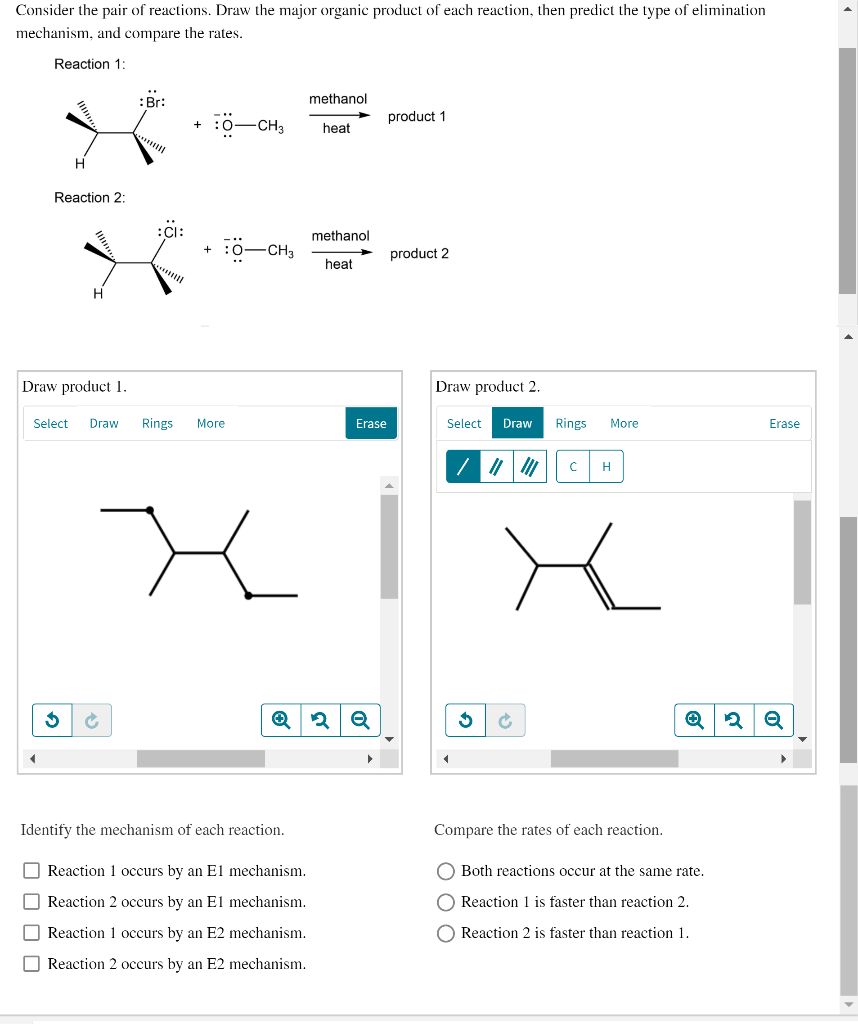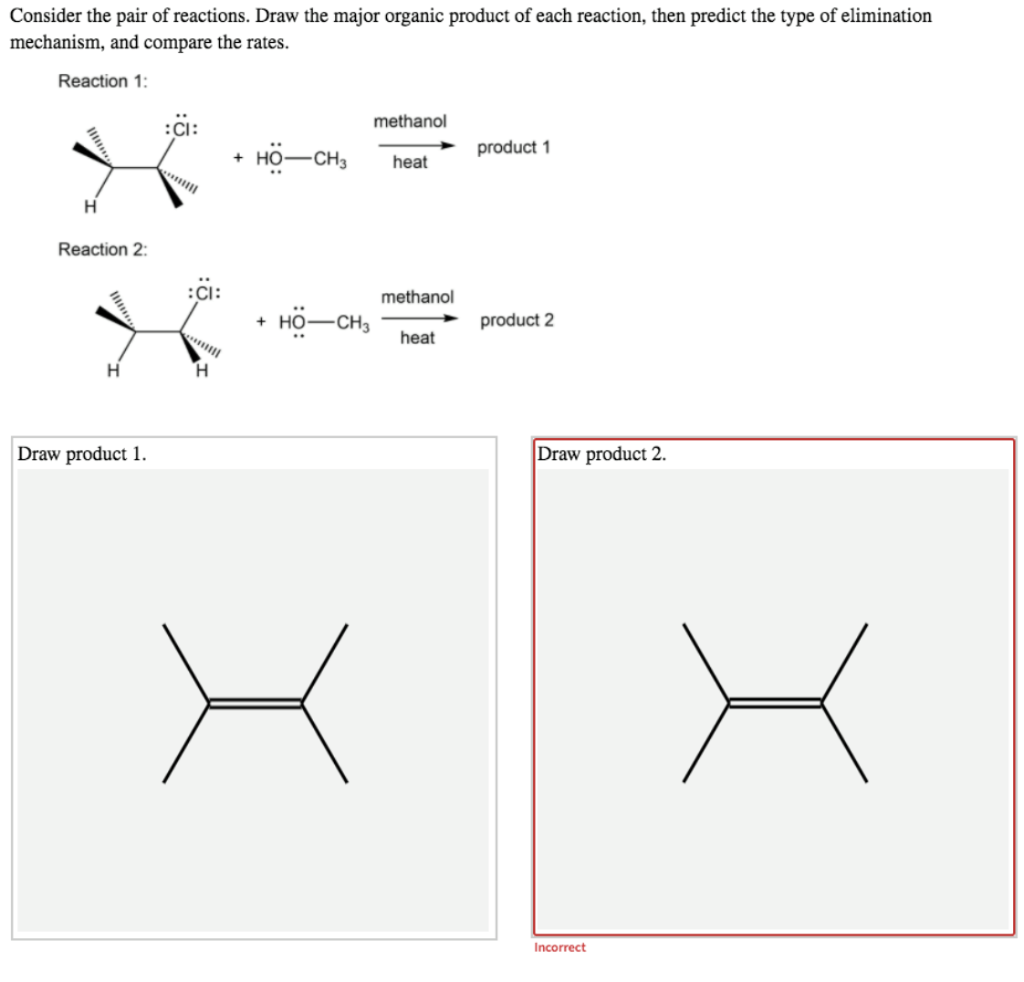Consider The Pair Of Reactions Draw The Major Organic Product
Consider The Pair Of Reactions Draw The Major Organic Product - Web you'll get a detailed solution from a subject matter expert that helps you learn core concepts. Web consider the pair of reactions. Draw the major organic product of each reaction, then predict the type of elimination mechanism, and compare. Consider the pair of reactions. Web predict the most abundant neutral organic product that would form, and explain your reasoning. Consider the pair of reactions shown. Draw the major organic product of each reaction, then predict the type of elimination mechanism,and compare the rates.draw. Web recognize and distinguish between the four major types of organic reactions (additions, eliminations, substitutions, and rearrangements) introduction if you scan any organic. Web draw the major, neutral organic product obtained if: B) the reaction proceeds by the sn2 mechanism.
Draw the major organic product of each reaction, then predict the type of elimination mechanism, and compare the rates. Draw the major organic product of each reaction, then predict the type of elimination mechanism, and compare. Web consider the pair of reactions. Consider the pair of reactions. Draw the major organic and. Web predict the most abundant neutral organic product that would form, and explain your reasoning. Web consider the pair of reactions.
We need to compare the rate of both the reactions and give the type of. Consider the pair of reactions. A) the reaction proceeds by the sn1 mechanism; Consider the pair of reactions. Consider the pair of reactions.
Draw the major organic product of each reaction, then predict the type of elimination mechanism, and compare. Draw the major organic product of each reaction, then predict the type of elimination mechanism, and compare the rates. Web consider the pair of reactions. Web answered • expert verified. Web draw the major, neutral organic product obtained if: Consider the pair of reactions.
Predict the type of substitution mechanisms and compare expected rates if you consider the pair of reactions through the organic products. Draw the major organic and inorganic products of reaction 1. Web answered • expert verified. Consider the pair of reactions. We are asked to find out the major product of the two reactions that we were given.
Web consider the pair of reactions. Consider the pair of reactions. Consider the pair of reactions. Assume that you isolate a mixture the major product (which.
We Are Asked To Find Out The Major Product Of The Two Reactions That We Were Given.
Draw the major organic and inorganic products of reaction 1. Assume that you isolate a mixture the major product (which. Consider the pair of reactions shown. Draw the major organic product of each reaction, then predict the type of elimination mechanism, and compare the rates.
Web Draw The Major Organic Product Of Each Reaction, Then Predict The Type Of Elimination Mechanism And Compare The Rates.
Consider the pair of reactions. We need to compare the rate of both the reactions and give the type of. Web predict the most abundant neutral organic product that would form, and explain your reasoning. Web you'll get a detailed solution from a subject matter expert that helps you learn core concepts.
Web Consider The Pair Of Reactions.
Draw the major organic product of each reaction, then predict the type of elimination mechanism, and compare the. A) the reaction proceeds by the sn1 mechanism; Consider the pair of reactions. Web draw the major, neutral organic product obtained if:
Draw The Major Organic Product Of Each Reaction, Then Predict The Type Of Elimination Mechanism,And Compare The Rates.draw.
Draw the major organic product of each reaction, then predict the type of elimination mechanism, and. Consider the pair of reactions. Web recognize and distinguish between the four major types of organic reactions (additions, eliminations, substitutions, and rearrangements) introduction if you scan any organic. Predict the type of substitution mechanisms and compare expected rates if you consider the pair of reactions through the organic products.






